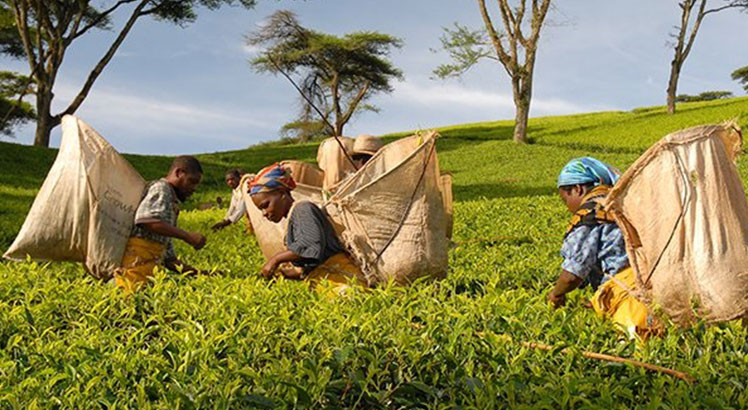A day-long regional tea multi-stakeholders meeting held on Thursday in Blantyre recommended that Malawi and other tea-producing member countries should improve trade among themselves, observing that the country is losing billions in dollars by exporting raw tea to the West.
Speaking during the opening of the meeting, Trust Africa programmes manager for equitable development and economic justice Bethule Nyamambi said the tea industry must consider adding value to the product before considering the export market.
He said: “The programme strives to foster genuine and inclusive sustainability in global value chains, where the voices of farmers, workers and citizens are well represented in decision making, and can contribute to sustainable natural resource management, decent work and fair value distributed throughout the sector.
“The initial outcomes of the country policy engagements in Uganda, Kenya, Mozambique and Malawi have emphasised the need for coordinated efforts in addressing bottlenecks in market access, influencing creation of a conducive policy and regulatory environment and creation of a community of practice for cross learning and sharing of knowledge amongst actors within the value chain.”
In a separate interview, Trust Africa Southern Africa programme coordinator, Beatrice Makwenda, said it is unfortunate that to date there is only one auction market that caters for the whole of Africa, in the process, countries are losing a billion dollars every year due to poor tea market structures.
Said Makwenda: “It is not viable for all of us to be dependent on one market. We need to use the opportunity presented by the African Continental Free Trade Area (AfCFTA) so that we have clear strategies on tea markets on the continent.
“We must also ensure that we add value to our tea so that it fetches higher earnings on the market, both in Africa and outside Africa.”
Tea Growers Association of Malawi (Taml) chairperson, Sangwani Hara, however, said there are a lot of other problems affecting tea production in Malawi and Africa as a whole which consequently impact negatively on the earning.
Said Hara: “Apart from market challenges, a lot needs to be done. Regulatory frameworks by most governments in Africa are not that conducive. Governments must make a commitment to remove regulatory bottlenecks. Additionally, the cost of inputs is also on the higher side for ordinary farmers.”
Minister of Trade Mark Katsonga, who was guest of honour at the event, applauded the meeting, saying it shows how committed they are to supporting the sector in its contributions towards the social and economic development of countries in the region.
He said: “It is gratifying to note that the gathering includes representatives of players in the tea sector in Africa. The discussion here is a sign of a common understanding and appreciation of the importance of the tea sector here in Malawi and within our region.
“As a ministry, responsible for both domestic and foreign trade, manufacturing and entrepreneurship development, in terms of the agro-processing dimension of the trade and industry sector in Malawi, tea occupies the unique position of having been the first crop to be grown on a commercial scale.”
The meeting drew delegates from Burundi, Kenya, Mozambique, Tanzania, Rwanda, Uganda and Malawi.
Tea is Malawi’s second major foreign exchange earner, after tobacco.
Besides bringing forex, growing tea provides employment and contributes to the livelihoods of many men and women in the country. Statistics indicate that there are 20 000 smallholder farmers and many more are employed as seasonal farm workers or tea pickers.
The post Tea forum lobbies for trade improvement appeared first on The Nation Online.
 Moni Malawi
Moni Malawi 

